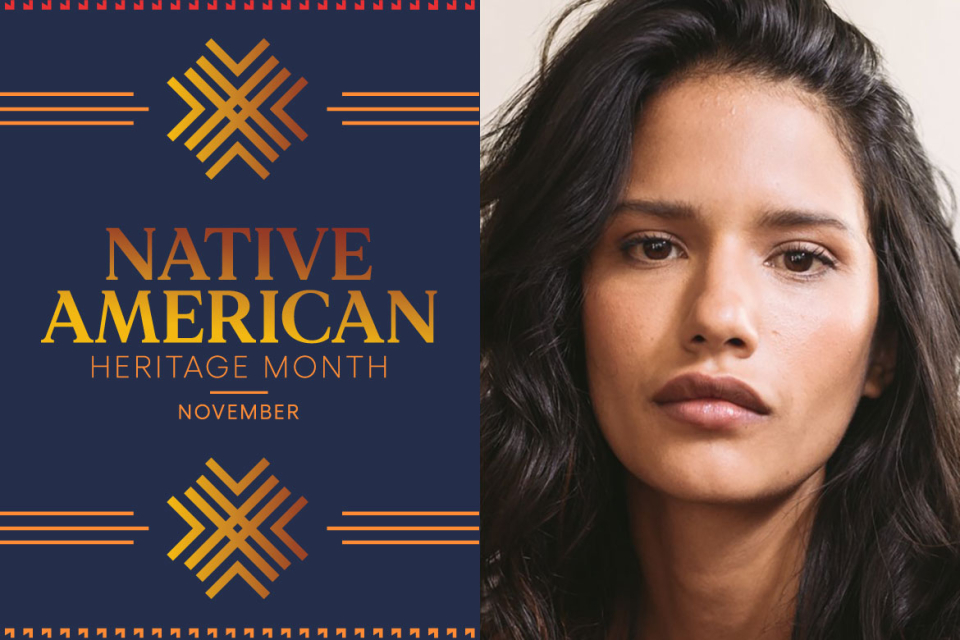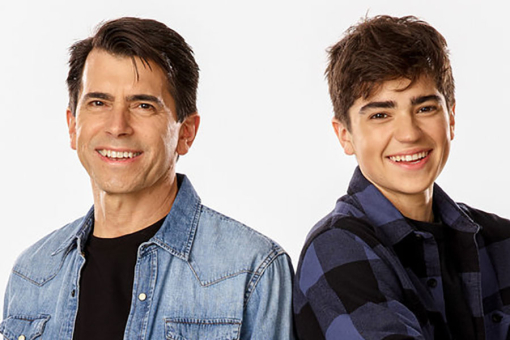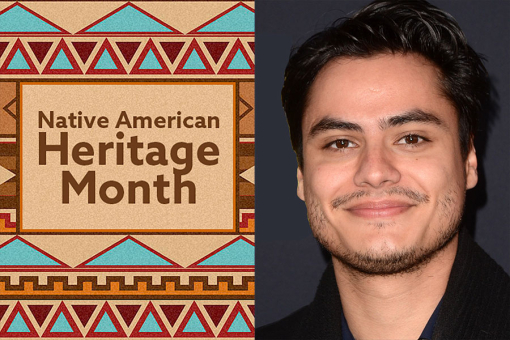As she was working to make a name for herself on Canadian television, Tanaya Beatty (Kwakwakaʼwakw First Nations) gained a global stage in 2011's The Twilight Saga: Breaking Dawn - Part 1.
Born in a small town (population 500) in British Columbia called Midway, Beatty had moved to Vancouver to pursue her love of acting and theater when she decided to take a shot at an open casting call for Twilight.
It was a plan with a very successful outcome. She won the role of Rachel Black.
Since that blockbuster film series, she has continued to work on both sides of the border, even while recognizing that her Canadian First Nations community historically has not recognized such boundaries.
"We're all traversing colonial landscapes," Beatty says. "I'm from Canada. There weren't borders there for First peoples, and we always laugh, because they didn't exist for our ancestors."
Her success in the Twilight movie broke boundaries for her career, bringing roles in Canadian TV series Blackstone, True Justice, Arctic Air and Continuum, followed by parts in US television shows The 100, The Night Shift and Yellowstone.
She also appeared opposite Johnny Depp last year in a short film promoting the luxury brand Dior's men's fragrance Sauvage, which the fashion house later pulled from distribution after it was criticized for cultural appropriation.
In the brouhaha that followed, Beatty admitted she felt conflicted during the filming and believed that Dior – though misguided – "had every intention of showing indigenous culture in a beautiful light while giving jobs to some Indians in the process."
In a social media post at the time, she detailed some of the indignities she's endured as an actress. "On set, I've had my hair touched, been told I am too native looking, not native looking enough, been asked to be naked, been told I need more fake blood on my face to look like I've been really raped, been touched inappropriately, been called slurs, and been told by someone that they didn't know natives still [existed]," she wrote.
Despite these and other challenges, Beatty says she tries to stay mindful and take herself lightheartedly. "Regardless of my heritage or culture, in the entertainment industry, I try not falling for the BS, for lack of a better term. There's lots of smoke and mirrors," she says during a lengthy phone interview.
"It can be difficult because people with so much power have to conduct themselves with dignity and integrity. The challenge has been remembering who I am and where I come from. My goal is to be of service to the Indigenous community because I do have this career as a gift and a blessing. I don't spend too much time thinking about challenges. My focus is staying mindful and remembering why."
The struggle for Native peoples to clearly define themselves to others is a concept to which Beatty has also given much thought.
"I don't get offended about being called anything, because Native people have been called so many things," she points out. "But even the use of the term Native American is interesting. I hesitate to use it, not to be self-righteous and politically correct, but our nations are so vast, unique and rich that those words can kind of erase it, which has nothing to do with being American."
"Elders prefer to be called by their tribes, a movement toward their actual nation. It's complicated. I see a lot of people reclaiming the word Indian, but some are offended by it. There's been trauma, and I understand."
Over the past decade, Beatty has seen some slow changes in the authenticity of Native and Indigenous portrayals in storytelling. "I see a lot more Indigenous talent not being offered platforms but going ahead and making platforms themselves," she says. "There are not as many Iron Eyes Codys, people pretending to be Native and putting on brownface - it's not happening as much anymore.
"Film and television shows that feature Native actors are often told through a colonial lens, and we'll see some of the same tropes. Sometimes they're more clever, sometimes the people at the top will be more sensitive, and they'll do their best to tell our stories in a good way. So I do see people catching on and telling our community's stories but ultimately the stories have to start coming from us, and the head honchos have to start offering support."
In this era of Hollywood's examination of its own systemic racism, Beatty feels some optimism for the future.
"What that's really pointing towards is I want the same opportunities others have regardless of their culture," she says. "I would prefer if I get the job not to have it be contingent on my cultural background. Beyond that, I want writers to get more creative to create roles anyone can play that are beyond race and whiteness. I just want people to use their intelligence and dream bigger."
Read more on Native American inclusion in the television industry.













